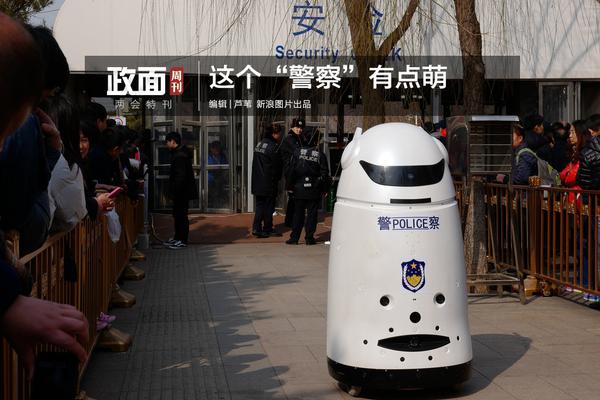
1. System stability refers to 1 System stability refers to a certain stable state shown by system elements under external influence. Its meanings are roughly divided into the following three categories: (1), external temperature, mechanical and other various changes, which do not have a significant impact on the state of the system.
2. The so-called system stability refers to the performance of the system recovering from the initial deviation state to the original equilibrium state after the disturbance disappears. In classical control theory, the sufficient necessary condition for system stability is that when time tends to infinity, the unit pulse of the system is correspondingly equal to zero.
3. It means that when the system is disturbed, it deviates from the original equilibrium state, and when the disturbance disappears, the system can gradually return to the original equilibrium state, which means that the system is stable.
The so-called system stability refers to the performance of the system recovering from the initial deviation state to the original equilibrium state after the disturbance disappears. In classical control theory, the sufficient necessary condition for system stability is that when time tends to infinity, the unit pulse of the system is correspondingly equal to zero.
Then the number of Z of the closed-loop right poles of the system is: Z=N+P. When Z=0, the system is stable; when Z0, the system is unstable.
The stability of a linear system is the main performance indicator of the system. The methods for judging the stability of a linear system include algebraic method, root trajectory method and Nyquist judgment method.
Stable, which shows that this kind of system has good security and will not often crash. It is very mature, but the openness is poor. The most stable system in the world is MSDOS, but its openness is very poor. There are many restrictions. Now it is a personal operation to say that the system is stable.
What does system stability mean? 1 System stability refers to a certain stable state shown by system elements under external influence. Its meanings are roughly divided into the following three categories: external temperature, mechanical and other changes, which do not have a significant impact on the state of the system.

The stability of the system refers to 1 system stability refers to a certain stable state of system elements under the influence of the outside world. Its meanings are roughly divided into the following three categories: (1), external temperature, mechanical and other various changes, which do not have a significant impact on the state of the system.
It means that when the system is disturbed, it deviates from the original equilibrium state, and when the disturbance disappears, the system can gradually return to the original equilibrium state, which means that the system is stable.
The so-called system stability refers to the performance of the system to recover from the initial deviation state to the original equilibrium state after the disturbance disappears. In classical control theory, the sufficient necessary condition for system stability is that when time tends to infinity, the unit pulse of the system is correspondingly equal to zero.
The stability of a linear system is the main performance indicator of the system. The methods for judging the stability of a linear system include algebraic method, root trajectory method and Nyquist judgment method.
System stability refers to the performance of the system that can gradually recover to its original equilibrium after being disturbed by external disturbances. If the system can gradually restore balance through self-regulation after the disturbance disappears, it means that the system is stable.
System stability refers to a certain stable state shown by system elements under external influence. It containsThere are roughly the following three categories: (1), external temperature, mechanical and other changes, which do not have a significant impact on the state of the system.
System stability refers to the performance that the system can gradually recover to its original equilibrium state after being disturbed by external disturbances. If the system can gradually restore balance through self-regulation after the disturbance disappears, it means that the system is stable.
System Stability Definition 1 System stability refers to a certain stable state shown by system elements under external influence. Its meanings are roughly divided into the following three categories: (1) External temperature, mechanical and other changes do not have a significant impact on the state of the system.
The so-called system stability refers to the performance of the system to recover from the initial deviation state to the original equilibrium state after the disturbance disappears. In classical control theory, the sufficient necessary condition for system stability is that when time tends to infinity, the unit pulse of the system is correspondingly equal to zero.
Casino Plus app-APP, download it now, new users will receive a novice gift pack.
1. System stability refers to 1 System stability refers to a certain stable state shown by system elements under external influence. Its meanings are roughly divided into the following three categories: (1), external temperature, mechanical and other various changes, which do not have a significant impact on the state of the system.
2. The so-called system stability refers to the performance of the system recovering from the initial deviation state to the original equilibrium state after the disturbance disappears. In classical control theory, the sufficient necessary condition for system stability is that when time tends to infinity, the unit pulse of the system is correspondingly equal to zero.
3. It means that when the system is disturbed, it deviates from the original equilibrium state, and when the disturbance disappears, the system can gradually return to the original equilibrium state, which means that the system is stable.
The so-called system stability refers to the performance of the system recovering from the initial deviation state to the original equilibrium state after the disturbance disappears. In classical control theory, the sufficient necessary condition for system stability is that when time tends to infinity, the unit pulse of the system is correspondingly equal to zero.
Then the number of Z of the closed-loop right poles of the system is: Z=N+P. When Z=0, the system is stable; when Z0, the system is unstable.
The stability of a linear system is the main performance indicator of the system. The methods for judging the stability of a linear system include algebraic method, root trajectory method and Nyquist judgment method.
Stable, which shows that this kind of system has good security and will not often crash. It is very mature, but the openness is poor. The most stable system in the world is MSDOS, but its openness is very poor. There are many restrictions. Now it is a personal operation to say that the system is stable.
What does system stability mean? 1 System stability refers to a certain stable state shown by system elements under external influence. Its meanings are roughly divided into the following three categories: external temperature, mechanical and other changes, which do not have a significant impact on the state of the system.

The stability of the system refers to 1 system stability refers to a certain stable state of system elements under the influence of the outside world. Its meanings are roughly divided into the following three categories: (1), external temperature, mechanical and other various changes, which do not have a significant impact on the state of the system.
It means that when the system is disturbed, it deviates from the original equilibrium state, and when the disturbance disappears, the system can gradually return to the original equilibrium state, which means that the system is stable.
The so-called system stability refers to the performance of the system to recover from the initial deviation state to the original equilibrium state after the disturbance disappears. In classical control theory, the sufficient necessary condition for system stability is that when time tends to infinity, the unit pulse of the system is correspondingly equal to zero.
The stability of a linear system is the main performance indicator of the system. The methods for judging the stability of a linear system include algebraic method, root trajectory method and Nyquist judgment method.
System stability refers to the performance of the system that can gradually recover to its original equilibrium after being disturbed by external disturbances. If the system can gradually restore balance through self-regulation after the disturbance disappears, it means that the system is stable.
System stability refers to a certain stable state shown by system elements under external influence. It containsThere are roughly the following three categories: (1), external temperature, mechanical and other changes, which do not have a significant impact on the state of the system.
System stability refers to the performance that the system can gradually recover to its original equilibrium state after being disturbed by external disturbances. If the system can gradually restore balance through self-regulation after the disturbance disappears, it means that the system is stable.
System Stability Definition 1 System stability refers to a certain stable state shown by system elements under external influence. Its meanings are roughly divided into the following three categories: (1) External temperature, mechanical and other changes do not have a significant impact on the state of the system.
The so-called system stability refers to the performance of the system to recover from the initial deviation state to the original equilibrium state after the disturbance disappears. In classical control theory, the sufficient necessary condition for system stability is that when time tends to infinity, the unit pulse of the system is correspondingly equal to zero.
UEFA Champions League live streaming free
author: 2025-02-05 22:50 Hearthstone arena deck Builder
Hearthstone arena deck Builder
623.99MB
Check UEFA Champions League live streaming app
UEFA Champions League live streaming app
892.42MB
Check UEFA Champions League live streaming free
UEFA Champions League live streaming free
263.56MB
Check Hearthstone arena class win rates reddit
Hearthstone arena class win rates reddit
257.96MB
Check UEFA European championship
UEFA European championship
751.36MB
Check Bingo Plus stock
Bingo Plus stock
721.75MB
Check UEFA Champions League live streaming app
UEFA Champions League live streaming app
425.57MB
Check DigiPlus stock
DigiPlus stock
126.79MB
Check 100 free bonus casino no deposit GCash
100 free bonus casino no deposit GCash
383.86MB
Check UEFA Champions League standings
UEFA Champions League standings
224.93MB
Check DigiPlus stock
DigiPlus stock
939.14MB
Check Champions League
Champions League
565.42MB
Check Champions League
Champions League
773.37MB
Check DigiPlus fair value
DigiPlus fair value
797.75MB
Check Casino Plus GCash login
Casino Plus GCash login
755.78MB
Check Hearthstone Wild Decks
Hearthstone Wild Decks
325.19MB
Check Hearthstone deck
Hearthstone deck
963.25MB
Check UEFA EURO
UEFA EURO
963.62MB
Check Hearthstone Arena Tier List
Hearthstone Arena Tier List
589.98MB
Check TNT Sports
TNT Sports
668.97MB
Check casino plus free 100
casino plus free 100
129.87MB
Check Casino redeem
Casino redeem
616.31MB
Check UEFA EURO
UEFA EURO
181.98MB
Check Casino redeem
Casino redeem
712.19MB
Check European Cup live
European Cup live
513.43MB
Check DigiPlus
DigiPlus
328.15MB
Check Free sports events uefa champions league app android
Free sports events uefa champions league app android
737.49MB
Check Hearthstone Arena Tier List
Hearthstone Arena Tier List
524.99MB
Check DigiPlus fair value
DigiPlus fair value
423.62MB
Check UEFA Champions League live
UEFA Champions League live
764.63MB
Check Hearthstone Arena win rate
Hearthstone Arena win rate
479.68MB
Check UEFA Champions League live streaming app
UEFA Champions League live streaming app
768.88MB
Check Arena Plus login
Arena Plus login
393.61MB
Check casino plus free 100
casino plus free 100
942.37MB
Check LR stock price Philippines
LR stock price Philippines
642.73MB
Check DigiPlus fair value
DigiPlus fair value
634.59MB
Check
Scan to install
Casino Plus app to discover more
Netizen comments More
489 Casino Plus GCash login
2025-02-06 00:35 recommend
2441 European Cup live
2025-02-06 00:34 recommend
348 UEFA Champions League standings
2025-02-05 23:28 recommend
782 UEFA EURO
2025-02-05 23:27 recommend
1414 DigiPlus fair value
2025-02-05 22:43 recommend